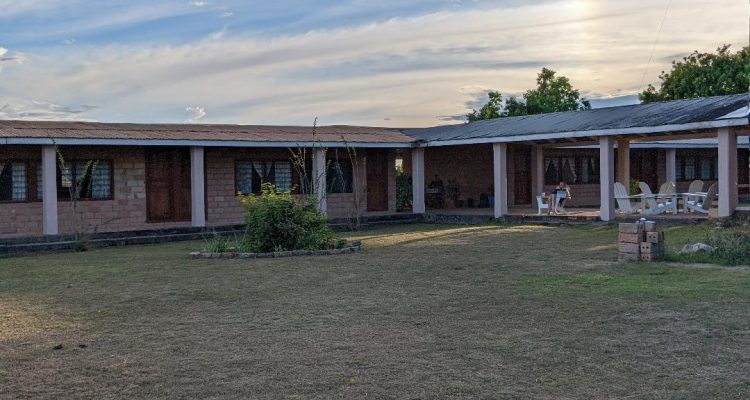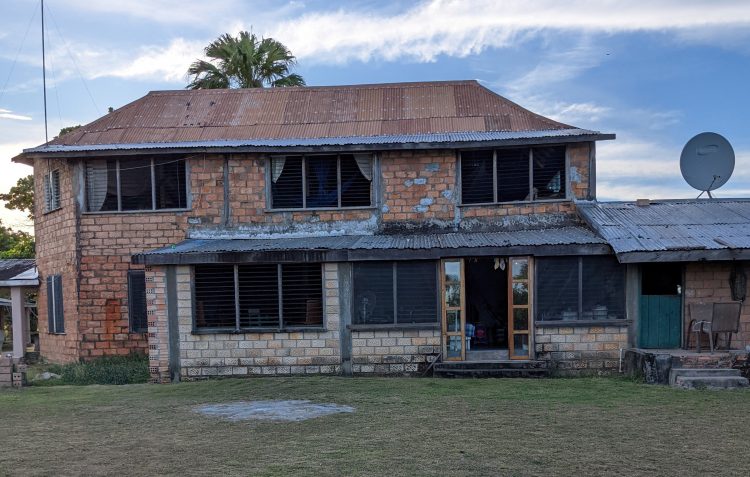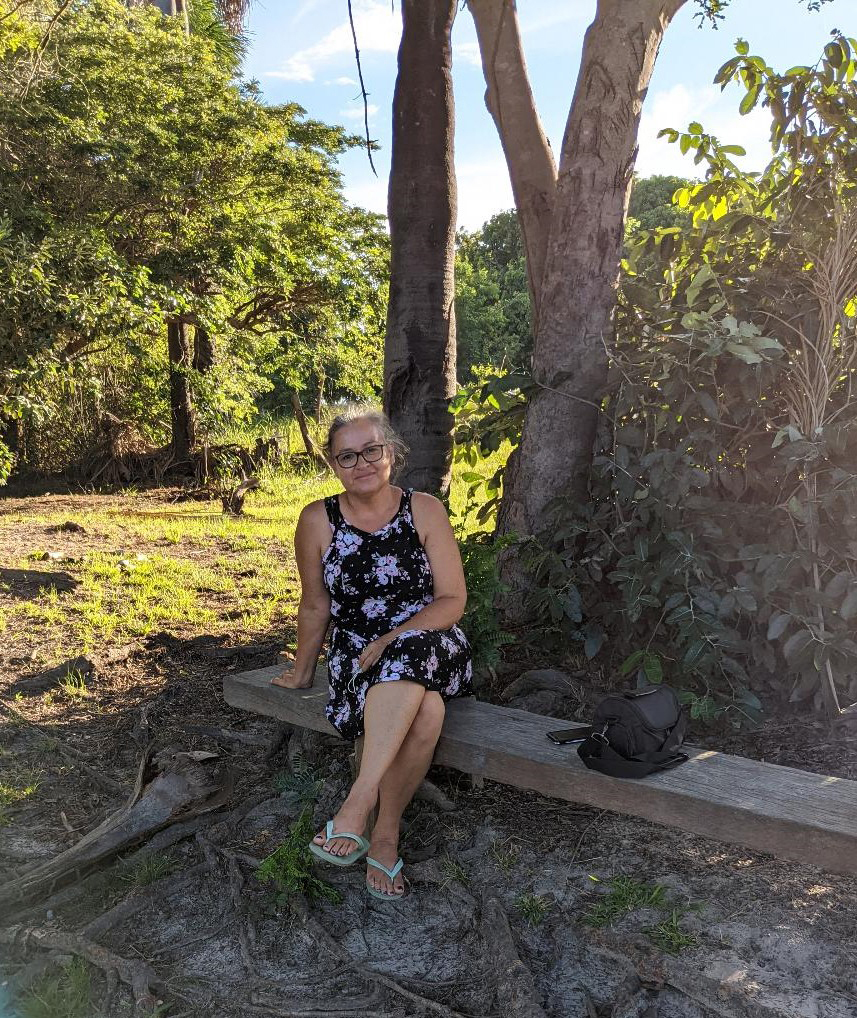The name Manari is associated with one of Guyana’s best-known cattle ranches in Guyana. The Manari Guest House used to be one of the places of choice for visitors to the Rupununi.
While the name Manari still ‘pops’ up in literature on the subject of tourism, its present proprietor concedes that it is these days, a shadow of its former self. More recently, that decline has been accentuated by the onset of the global Covid-19 pandemic. The pandemic, the current proprietor Lisa Orella says, “shut and closed my business.”
Afterwards, she moved to Canada to work and earn in order to save what is still regarded as one of the Rupununi’s historic visitor landmarks.

By the time we met with Lisa last November, the facility had already been closed for about a year and she had only just returned home and commenced the task of seeking to revive the facility. Covid-19, Lisa says, had made her aware of the need for what she called a “Plan B,” an option to which one could turn in circumstances where the substantive pursuit, for some reason, had ‘gone sour’.
The Ranch had slipped into decline even before the onset of the pandemic. Its demise had begun back in 2007 following the death of her father, Louis Orella. “All the animals died after my dad died… I do not know what happened… they just died after dad died,” Lisa related.
These days, much of her time is spent contemplating plans for rejuvenating the facility… organising visits for guests to places like the Moco Moco Falls, the Awaria Beach, and the Quarrie Falls. “These are things that have to be done if Manari is to be successful,” she opines.

The costs involved in the rehabilitation of the ranch are prohibitive. The creation of kraals for the animals is likely to be one of the major costs. Unlike in previous times, the animals can no longer be allowed to “roam in the wild.” The proliferation of cattle rustling has seen to that.
When we spoke Lisa she was contemplating a “soft re-launching” of the facility that used to be one of the more talked-about visitor attractions in the Rupununi. While the Guest House is still undergoing renovation and repairs, it is, she says, reopened for business.
Reflecting on her life “as a child” on the ranch, Lisa recalls the experience of the “dry season,” particularly the cattle roundups. “The cowboys would bring the cattle in for one reason or another, either to be branded or otherwise to be treated for injuries.” Those experiences, she said, were shared by three ranches, the Manari Ranch, owned by the Orellas – her grandparents; the Pirara Ranch, owned by the Harts; and the Good Hope Ranch, owned by the Gorinskys.
The Manari Ranch and Guesthouse is located in Central Rupununi, approximately fifteen minutes’ drive from Lethem. The property took its name from the Manari River that flows past the facility.
The Guest House was commissioned in 1967. What remains an incomplete design was conceptualised by her grandfather, Theodore. She believes that it is now left to her to finish that job. Her mission, she says, is to undertake repairs and renovation whilst retaining the original architecture.
For Lisa, as a child, there had been no place like home. After sitting what, at the time, was the Common Entrance Examination, she had been granted a scholarship to attend school in Georgetown. That did not last long. After two terms, acute homesickness had compelled her repatriation to Manari. Afterwards she had been sent to Bonfim to live with an aunt and to attend school there. At 23 she migrated to Canada though the death of her father in 2007 saw her return home to take the helm at Manari.
The circumstances had, by then, changed considerably, but Lisa had been a good ‘student’ in the ways of her parents. “I am in it for the long haul,” she declares, though she concedes to having experienced the prejudices among men who begin by assuming that women are not ‘cut out’ to run businesses. Here, she recalls an occasion when she had to firmly ‘put her foot down’ in the face of the refusal on the part of a contractor to embrace her wishes in the matter of the digging of a well on the property. She eventually prevailed.
When you ask Lisa about the main challenges associated with doing business in the interior she responds unequivocally, “Communication! The internet is unstable and telephone communication can be interrupted for days.” These, she believes, are key areas of weakness that must be remedied if the local tourism industry is to thrive.
Not far behind the communication challenge, she says, are the difficulties associated with finding committed workers.
The Manari Guest House has ten self-contained rooms. Since there is no state-provided electricity generating service at the location, the facility operates a generator of its own. Cooling of the rooms is facilitated by electric fans that feed off the generator. Foreign visitors pay US$120 to stay at the guest house. Locals pay $15,000 per night. There is a reduced rate for groups of locals. There is also a ‘Rodeo Rate’ of $10 000 per night, inclusive of breakfast. Bird-watching is permissible. Hunting is not. Lisa says that while as a child she would spot anteaters and deer in the area, “These days, we hardly see animals. I recall that some time ago one of our guests came across a dead anteater. It appears that someone had killed it. My guest was so upset… she was in tears.”
These days, guests are mostly bird watchers. They come mostly from Europe and North America and they visit primarily during the dry season, September to April. Accordingly, business ‘drops off’ during the wet season. The hiatus allows for the income-generating rejuvenation of ranching activities.
Local guests visit mostly during the months of July and August. They come primarily from Georgetown. Foreigners would also come from neighbouring Brazil. The locals are mainly families. Often they bring their children to afford them a taste of the hinterland.
Lisa concedes that the Manari Ranch is not thriving at this time. Presently, there is no cattle there, though her focus is very much on returning the facility to its ‘old ways’. Tough times mean that she herself must ‘chip in’, supporting the cook, the facility’s only means of sustained support with the day-to-day running of the facility.
Manari helps support the livelihoods of the farming families in the community by purchasing vegetables from them. Otherwise, vegetables must be ‘imported’ from Bonfim.
Lisa says that her nineteen-year-old daughter, Melissa, appears to have in interest in following in her footsteps. She is comforted at the thought of the family legacy going beyond her own efforts
Lisa appears to favour reflection. Her grandmother, Margaret Melville, she says, had settled in the area after her marriage to her Spanish husband, Theodore Orella. They had been given land and animals by her parents and these served as a startup for the ranch. Back then, she said, vaqueros from Brazil would visit the ranch to participate in rodeo-type pursuits and the numbers of visitors would cause her grandparents to have to surrender their rooms in order to accommodate them. While the visitors were there, her displaced grandparents would make their beds in hammocks tied to trees.
It was out of the need to accommodate both the vaqueros and themselves comfortably that the idea of creating a guest house was born, The Manari Guest House was commissioned in 1967 by the then Prime Minister of Guyana, Forbes Burnham.
Age has, however, taken its toll on the building and Lisa says that repairs and renovation are now needed. These she says, are ongoing while she plans to effect adjustments to the property without losing too much of its original design.







